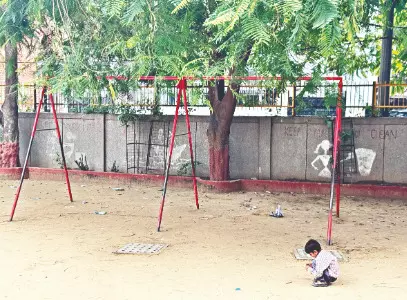Free education, zero value? Why MCD schools fail to match private standards

New Delhi: Despite visible efforts by the Municipal Corporation of Delhi (MCD) to strengthen its primary schools with NGO collaborations, mid-day meal schemes, and government-provided learning kits these institutions continue to lag significantly behind their private counterparts. A recent on-ground reporting exercise, involving teacher interactions and observations in South Delhi, highlights a reality that remains troubling yet largely overlooked.
On paper, MCD schools appear adequately supported. Teachers confirmed that the Modi Care Foundation has been assisting since 2022, providing additional Hindi instructors, furniture, and creative learning materials. Salaries are credited on time, library books are accessible, and even stationery allowances reach students’ accounts.
Yet, the picture changes when compared to the private sector.
Teachers themselves admit that while MCD ensures “free education,” parents rarely value it. “Whenever something is free, people don’t appreciate it until it’s gone,” remarked one teacher. Parents, often engaged in daily-wage or informal work, struggle to guide their children at home, leading to poor attendance, incomplete homework, and negligible communication skills. Unlike private schools, where parents actively drop, pick, and monitor their children, MCD schools suffer from low parental involvement.
Basic facilities further deepen the divide. Lack of swings, insufficient furniture in classrooms, and waterlogging during monsoon seasons make schools less child-friendly. Teachers candidly admitted that student attendance drops sharply whenever heavy rains flood surrounding areas, raising safety concerns. “We often have to tell parents to keep children at home during water logging safety is more important than attendance,” one teacher explained.
Even schemes like the mid-day meal, designed to incentives education, fail to inspire. Children reject staples like dalia or khichdi, preferring festive foods such as puri-sabzi or pakoras. While nutrition is prioritised, palatability remains a hurdle.
The real hurdle is perception: private schools are aspirational, MCD schools a last resort. Free education is undervalued, and without parental mindset shifts and infrastructure fixes, bridging the government-private school gap will remain elusive.



